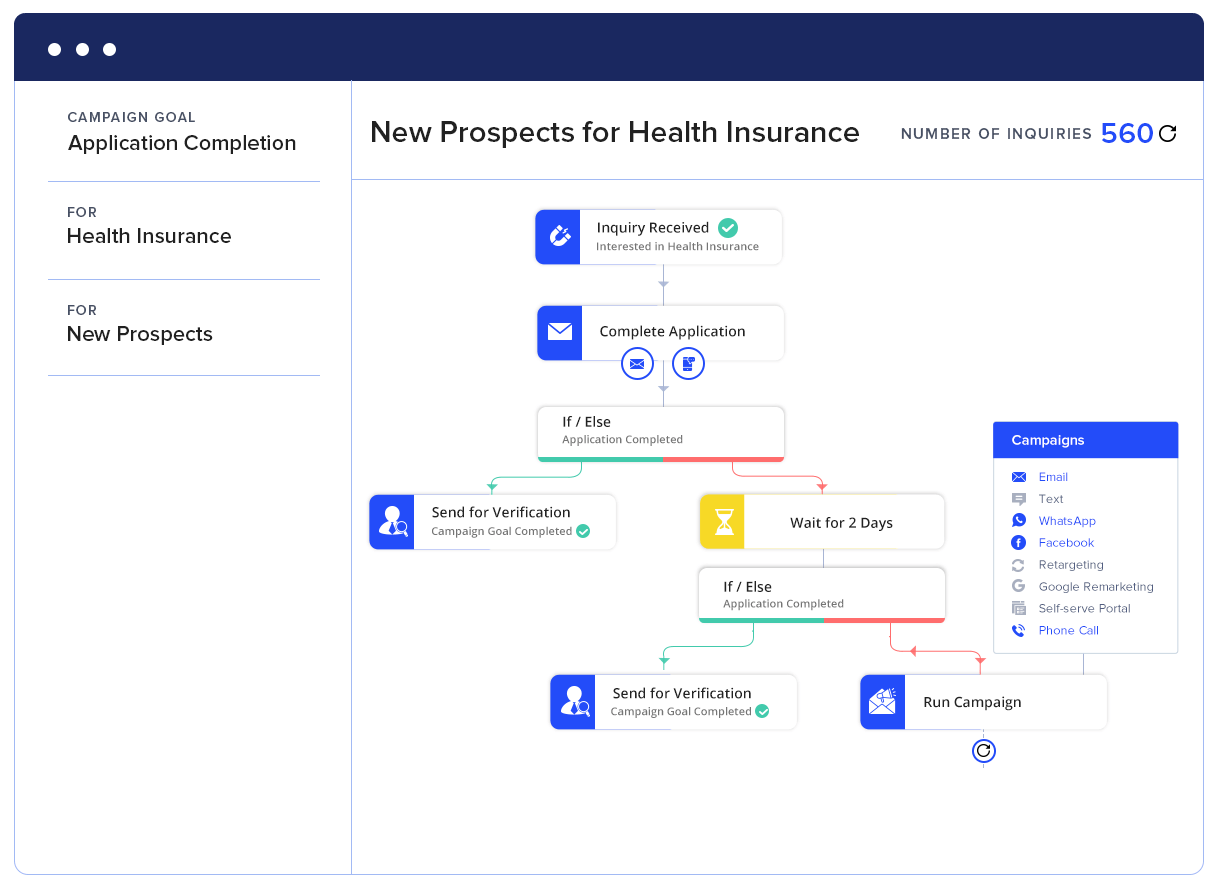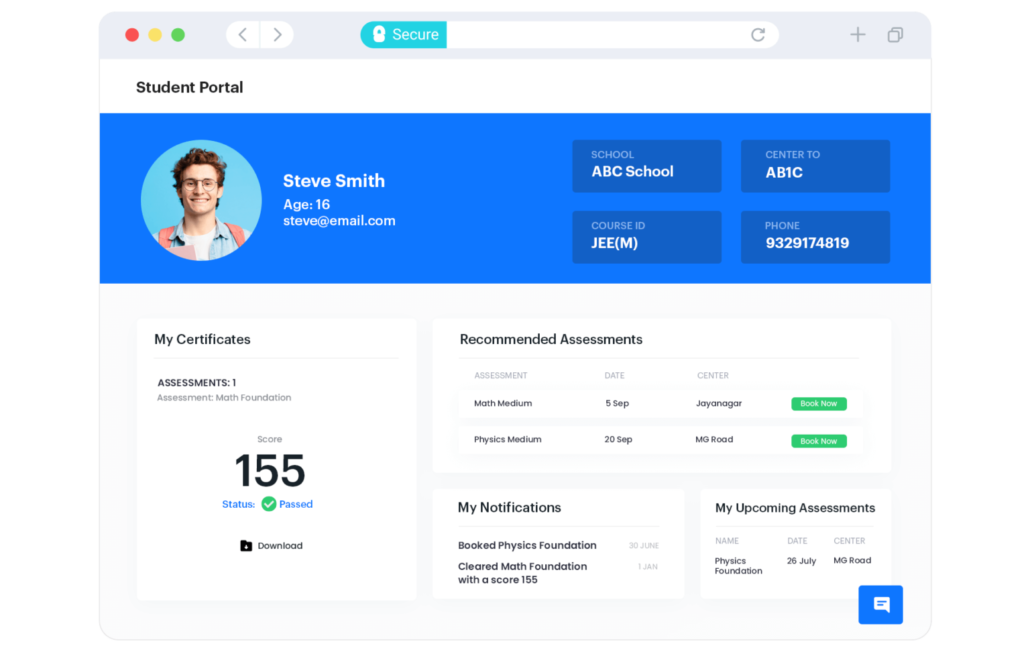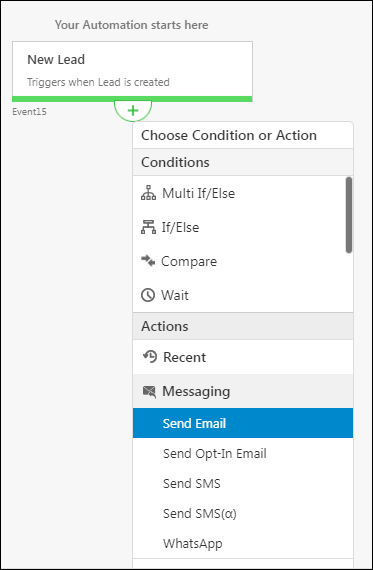In 2024, 72% of marketing executives intend to expand their investment in marketing technology. Automating marketing workflows allows businesses to launch optimized campaigns. It facilitates immediate interaction to address customer sentiments. Marketing automation enables organizations to make decisions based on customer data to improve overall performance.
In this post we’ll discuss 5 marketing workflows you can easily automate and to boost the effectiveness of your campaigns.
What is Marketing Automation?
Meaningful connections with customers build loyalty. However, to successfully build these connections, consistency is the key. Automation of marketing processes eliminates downtime and ensures that every possible customer touchpoint is covered all the time. Using emails, social media, advertisements, video, and other types of content, marketing automation ensures the delivery of highly personal messages while optimizing processes.
From lead nurturing, segmentation, analytics and reporting to customer relationship management (CRM), marketing automation ensures that the critical components of marketing get to the right person at the right time.

How Does Marketing Automation Boost Efficiency?
Optimized workflows increase productivity and improve the bottom line. By automating repetitive tasks, marketing automation streamlines overall operations. The automatic collection of customer data enhances targeting, which also contributes to improved operations.
- Streamlines repetitive processes: By automating routine tasks, marketing automation allows marketing teams to channel their energy towards crafting fresh campaign strategies. All they have to do is to define the triggers and let the platform take care of collating customer data, sending emails, and posting on social media.
- Personalized customer interaction: While campaigns are typically large-scale, marketing automation can personalize every communication with your customers. This creates individualized communication, which is one of the foundations of brand loyalty.
- Efficient lead nurturing. As customers engage with your material, the marketing automation platform keeps a record and scores every lead. Based on this initial process, high-quality leads are identified and given priority in the next campaign to further build connection with your brand.
- Increases operational efficiency. While multi-channel campaigns used to be a tedious process, marketing automation changed the landscape by simplifying campaign management. By promoting consistency across all channels, marketing automation increases efficiency.
- Improves customer data management: Since the marketing automation platform connects seamlessly with the CRM system, organizations are confident that every customer detail is updated in real-time. This also facilitates instant access to customer information.

- Optimizes campaigns: The automated platform gives marketers fast access to campaign data, allowing them to instantly modify strategies and optimize campaigns for better outcomes.
- Promotes accuracy: Accuracy and reliability are two important attributes that should be present in every marketing campaign as you want to gain the trust of customers. Compared with manual processes, automating marketing workflows can minimize the occurrence of errors.
- Cost-effectiveness: In marketing, return on investment is an important metric for measuring the effectiveness of campaigns and other initiatives. However, every campaign entails multiple manpower to produce results. With marketing automation, the need for large teams is eliminated.
5 Marketing Processes to Automate
1. Email marketing
Based on a survey of marketing professionals, 64% identified email as the top source of customer data. While this channel may seem the first to become outdated, email remains the top choice for marketers when it comes to building engagement. The consistency of this channel nurtures audience interaction with your brand. The resulting relationship often leads to conversions.
However, the nuances of managing email campaigns can be time-consuming. At the same time, it becomes prone to errors as your subscriber list grows. Automating critical aspects of your email marketing ensures that your messages are timely, personalized, and consistently delivered to the right customers.
Drip campaigns
Drip campaigns is a type of email marketing that involves a series of emails. The main objective is to gradually let the customer develop familiarity with your brand while at the same time providing valuable content. This approach contributes to building relationships with customers. As you provide them with valuable content, they become engaged with your brand. This typically involves setting up a welcome series for new subscribers, providing related content for leads who download a resource, or a re-engagement campaign for old contacts.
Triggered emails
Triggered emails are sent automatically based on user behavior. These emails contain highly targeted messages in response to the specific user interaction with your brand. These types of emails include those you receive after deciding to abandon your cart, prompting you to complete the purchase. Post-purchase emails, such as those requesting for feedback and even the simple messages that send appreciation for your purchase are also examples of triggered emails.

2. Social media posting
Another marketing workflow that you can automate is social media posting. Since at the core of engagement is brand awareness, maintaining an active and consistent presence online is crucial. For this particular purpose, the functionality of marketing automation tools is highlighted. Posting content across multiple platforms requires time, but through marketing automation, content is automatically shared at optimal times.
Maintaining an active and engaging social media presence is crucial for building brand awareness. However, consistently posting content across multiple platforms can be time-consuming, especially if done manually. Social media automation allows you to streamline processes. In 2023, 58% of marketers prioritized social media in their overall strategy.
Scheduled posts
When your social media calendar is aligned with your marketing calendar, you can effectively orchestrate the customer journey. Once you have scheduled your posts, your audience will receive a steady flow of updates and useful content. Marketing automation that works entails plotting of scheduled posts in your overall marketing calendar including campaigns, product launches, and events.
Social listening
Through the use of marketing automation tools, you can effectively monitor all your social media channels. You will know who is interacting with your brand, as well as the latest buzz that has a direct or indirect effect on your online image. As discussions take place, you are equipped to instantly engage and effectively use customer engagement metrics.
3. Lead nurturing and scoring
The main goal of lead nurturing is conversion. Marketing automation tools facilitate this through effective lead management. In 2023, lead nurturing campaigns were the most popular among all campaigns employed by 57% of marketers. What used to be a complex process involving the movement of leads into the sales funnel, automated lead nurturing ensures timely follow-ups, and increases the likelihood of successful conversions. This aspect of marketing is actually what makes it one of the best college majors for the future.
Lead scoring
Knowing exactly where the prospect is in the buying process used to be challenging for marketers. With automation, however, values are automatically assigned to each prospect based on interactions with your brand. Typical metrics include email opens, website visits, and social media engagement. Lead scores are calculated in real time, allowing sales teams to identify and focus on high-potential prospects.
Personalized content delivery
Personalization is one of the benefits of using marketing automation. Sending the exact content that your customer is looking for deepens engagement. By setting up automated workflows, you can deliver targeted content based on lead segments, such as industry-specific resources, product recommendations, or educational materials. This approach not only generates and keeps leads engaged but also guides them through the sales funnel more effectively.
4. Content marketing and distribution
Every marketing team’s goal is to reach a wider audience and optimize content distribution to maximize ROI. This is only possible through consistent creation and distribution of high-quality content. Customer engagement, as well as your brand authority, largely depends on the content you are providing customers.
According to a 2023 Hubspot report, 41% of marketers used website analytics, while 38% used CRM tools to effectively target content audiences. Using marketing automation platforms can significantly improve efficiency. The social listening process also helps you identify the right content at the right time for the right audience.
Content scheduling
Posting content at the most ideal time is one of the key engagement tactics in social media marketing. However, identifying when is the optimal time can be challenging. With marketing automation tools, you can schedule your content at various times. Depending on how your customers interact with your content, you will be able to identify which time is the best for a particular type of content.
Content curation
You can streamline the process of selecting, organizing, and sharing relevant content through marketing automation. In building engagement with your audience, curation is important for your brand to stay relevant. Knowing more about the preferences and interests of your customers will pave the way for better content curation. The value they will get from your resources will promote positive interactions.
5. Analytics and reporting
Effective campaign monitoring requires data so you can adjust your strategies accordingly. Your decisions need to be backed by real-time data. The automation of reporting and analytics in marketing will serve as the backbone of your overall strategy. Without automation, managing large datasets can become labor-intensive, which will eventually hurt overall operations.
A recent Adobe report indicates that automating analytics and reporting processes not only saves time but also facilitates high-level personalization, as 64% of marketing executives do.
Automated reporting
In marketing, getting the right data at the right time is crucial. With automated reporting, you can access and generate reports anytime to check your most important metrics. You can effectively monitor campaigns, website traffic, and conversion rates. Based on real-time reports, you can adjust your strategies to achieve your goals. Automation drives business goals and allows you to create custom reports that are instantly generated and sent to your inbox or dashboard, enabling quicker analysis and response to trends.
Real-time analytics
Real-time analytics provide immediate insights into your marketing performance. It allows marketers to monitor key metrics and adjust tactics in response to current data, which is what makes analytics one of the degrees that pay well. Automating real-time analytics involves setting up dashboards and alerts that track important KPIs as they happen.
Marketing automation platforms boost efficiency by offering real-time tracking and visualization of data, helping you stay informed about fluctuations in traffic, engagement, and conversions.
Optimize Your Marketing Processes Through Automation
Efficiency rules in the field of digital marketing. Automating critical marketing processes helps companies simplify processes and improve campaign performance.
By guaranteeing timely and customized messages, automated email campaigns help to build closer relationships with your audience. Social media automation enables interaction with your followers and regular online presence without always requiring manual updates. Lead nurturing and scoring automation give customized material based on high-potential prospects, therefore enhancing conversion rates.
While analytics and reporting automation offer real-time insights that direct data-driven decisions, content marketing and distribution automation maintains your material flowing naturally across channels.
Using these automated techniques not only increases productivity but also helps your marketing staff to focus on value-creating processes including creative execution and strategy creation.









